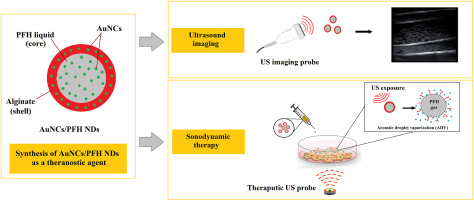
**A Chemically Altered Gold Compound Brings Innovations in Cancer Therapy**
An innovative breakthrough in cancer treatment is capturing the interest of both scientific and medical professionals. Researchers at RMIT University have created a chemically altered gold compound that achieves outstanding results in combating cancer while reducing damage to healthy cells. This pioneering therapy, recently highlighted in the *European Journal of Medicinal Chemistry*, demonstrated a remarkable 82% reduction in tumor growth during laboratory experiments, greatly exceeding the performance of conventional platinum-based chemotherapy agents like cisplatin.
### Pioneering Research at RMIT University
The research group, under the guidance of Distinguished Professors Suresh Bhargava and Magdalena Plebanski, has merged ancient wisdom with cutting-edge technology. Gold, utilized in traditional remedies for centuries, has now received scientific endorsement as a powerful anti-cancer substance. Yet, the gold employed in this research is exceptional—scientists have engineered a particular variant, known as Gold(I), to enhance its biological effectiveness while prioritizing safety.
Gold(I) has emerged as a transformative agent in targeting cancer cells. Specifically against cervical cancer, the compound had a 27-fold increase in effectiveness compared to the common chemotherapy medication cisplatin. Furthermore, it outperformed cisplatin in studies involving other aggressive cancer forms. The capability of this gold compound to specifically target cancerous cells while reducing harm to healthy tissue may resolve long-standing toxicity concerns associated with cancer treatments.
### Distinct Mechanisms of Action
The unprecedented success of the gold compound can be attributed to its multifaceted strategy in battling cancer:
1. **Inhibiting Specific Enzymes**: The modified gold selectively inhibits thioredoxin reductase, an enzyme that is overly present in cancer cells. This action disrupts essential biochemical processes necessary for the survival of cancer cells, effectively stifling tumor development from within.
2. **Averting Angiogenesis**: Beyond directly confronting cancer cells, the compound thwarts the formation of new blood vessels. This mechanism, referred to as anti-angiogenesis, deprives tumors of vital nutrients and oxygen needed for their growth and dissemination.
By targeting biological pathways unique to malignant cells, the gold compound offers a highly tailored treatment approach while preserving healthy cells, providing patients with a potentially safer option compared to traditional chemotherapy.
### Honoring Ancient Knowledge
Interestingly, the inspiration for this significant development originates from gold’s historical use in traditional Indian Ayurvedic practices. Over the centuries, gold has been esteemed across various cultures for its alleged health benefits. However, its applications lacked scientific backing until now. Professor Bhargava emphasized, *“We understand gold is readily assimilated by the human body and has been utilized for thousands of years to treat various ailments. Essentially, gold has undergone market validation but lacked scientific endorsement.”*
This groundbreaking research bridges that divide, merging gold’s compatibility with advanced molecular design to develop a compound suited for contemporary cancer treatments.
### The Uniqueness of Gold(I)
The essence of this compound’s efficacy lies in its chemical structure, Gold(I). Unlike ordinary metallic gold, which is chemically inert and does not readily engage with biological systems, the Gold(I) compound is reactive and biologically potent. This characteristic allows it to infiltrate cancer cells and selectively interrupt crucial enzymatic roles, while maintaining sufficient stability to safely navigate through the body to tumor locations.
### Assessing Against Cisplatin: A Safer, More Efficient Option?
Cisplatin, a platinum-based medication, has long been among the most prevalent chemotherapy options. While effective at targeting DNA to eradicate cancerous cells, cisplatin is indiscriminate and causes damage to healthy cells as well. This often results in severe adverse effects, including renal impairment, hearing deficits, and compromised immunity, complicating treatment for numerous patients.
In contrast, the gold compound developed by RMIT University offers enhanced selectivity and efficacy. It achieved an 82% reduction in tumor size in laboratory studies, compared to cisplatin’s 29%—nearly three times as effective. Simultaneously, it displayed significantly reduced toxicity, presenting a promising alternative for cancer patients.
### What Lies Ahead?
Despite the promising findings, additional research is necessary to transition this gold compound from laboratory settings to clinical evaluations. Testing on human subjects will be vital to establish safety, effectiveness, and dosage guidelines. However, initial studies utilizing zebrafish and other models indicate that the compound is both effective and well-tolerated, laying the groundwork for expanded use in oncology.
Beyond cervical cancer, the compound has shown promise in targeting other aggressive cancer types. Its dual-action mechanism—both inhibiting thioredoxin reductase and obstructing angiogenesis—suggests its potential as a versatile tool against diverse cancer forms.
### The Future of Cancer Treatment?
This advancement represents a major leap toward safer, more efficient cancer therapies. With its ability to selectively target cancerous cells, minimal adverse effects, and significant effectiveness, the chemically modified gold compound brings hope to millions of patients across the globe. If